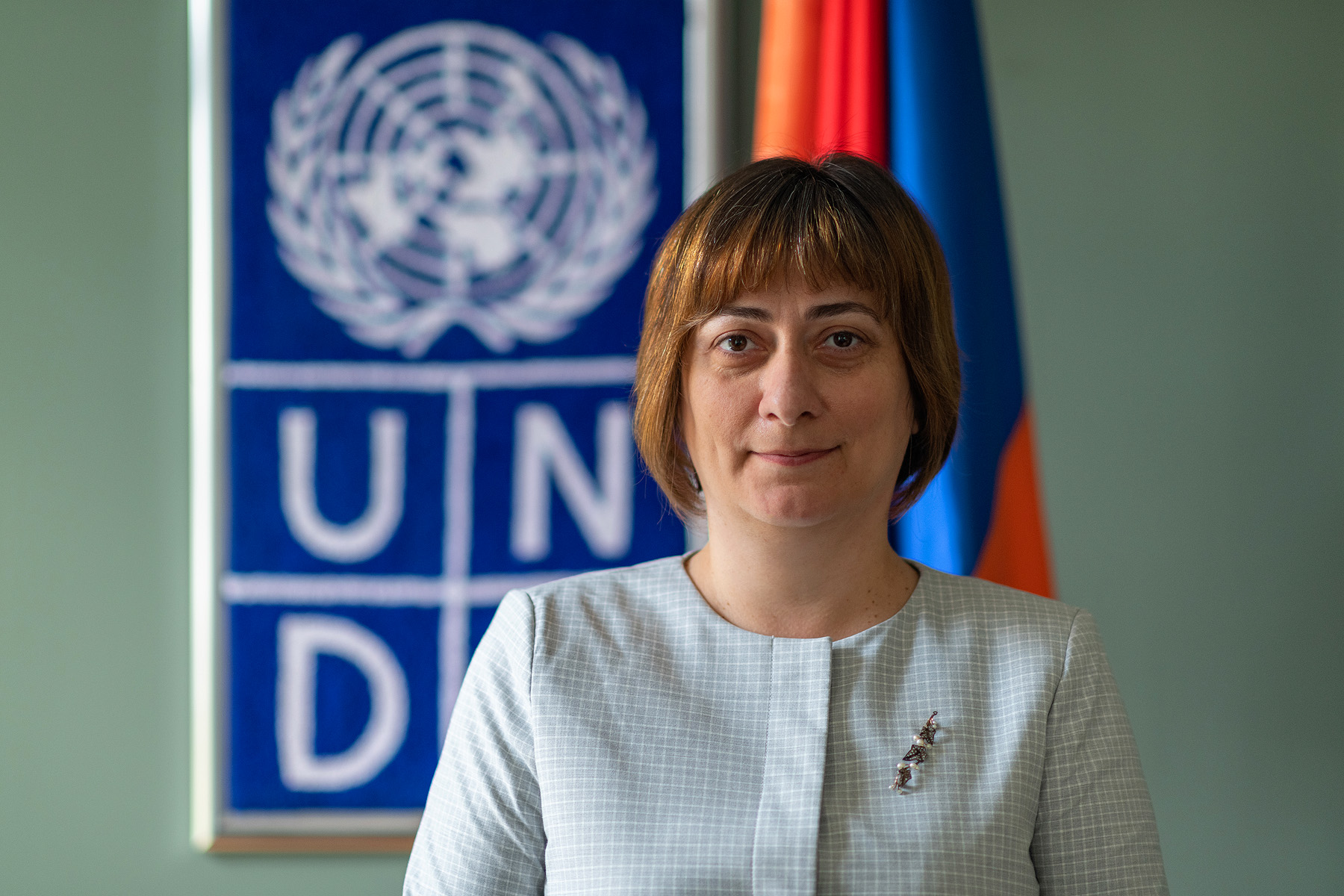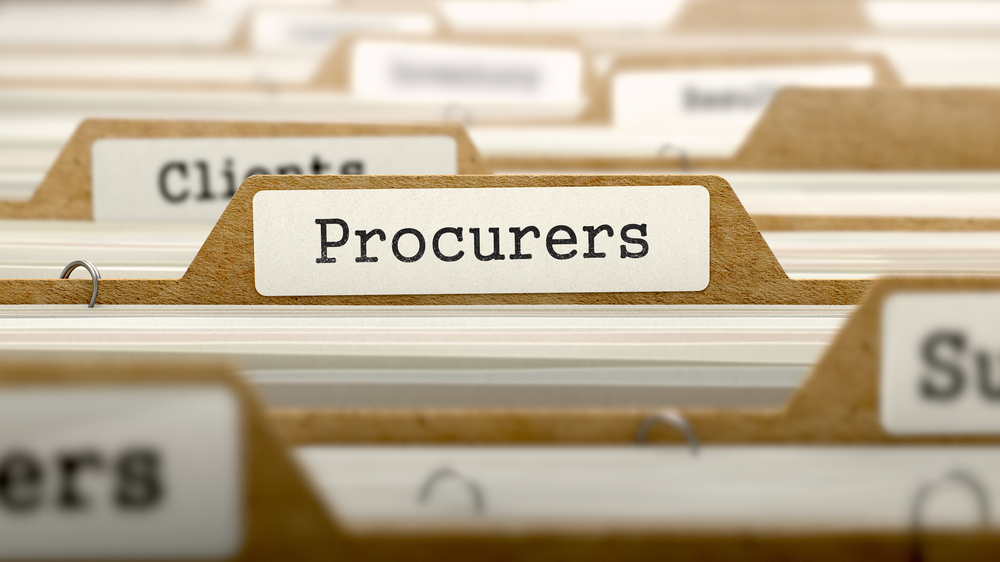Ms. Natia Natsvlishvili, UNDP Resident Representative in Armenia, gives opening remarks at the event.
Yerevan, 09 November 2021 – The official launch event of “Local Empowerment of Actors for Development in Lori and Tavush Regions” (EULEAD4Lori and Tavush Regions) project was held in Ijevan, Tavush region, with participation of Ms. Natia Natsvlishvili, UNDP Resident Representative in Armenia, Ms. Silja Kasmann, Deputy Head of Cooperation, the European Union (EU) Delegation to Armenia, representatives from the RA Ministries of Territorial Administration and Infrastructure, and Economy, Lori Regional Administration, UNDP in Armenia and FAO in Armenia.
The aim of the launch event was to introduce the goals, objectives and activities implemented by the “EULEAD4Lori and Tavush Regions” project to the regional authorities, community representatives, private sector, civil society, target groups, potential beneficiaries and the public at a large.
Within its 48 months of duration, the project will promote inclusive and sustainable socio-economic development resulting in improved quality of life in the communities and settlements of Lori and Tavush regions with active participation and engagement of the local population, including minorities and vulnerable groups, businesses and the civil society. This will be achieved by creation of Local Active Groups (LAGs) comprising from the representatives of the communities and settlements of Lori and Tavush regions.
Ms. Silja Kasmann, Deputy Head of Cooperation Section of the EU Delegation to Armenia addressed the participants reiterating the commitment of the European Union to support balanced regional development in Armenia. She mentioned that local and regional development is one of the priorities of EU-Armenia cooperation, embedded in the CEPPA agreement and 2021-27 EU-Armenia multi-annual indicative programme. "EU has been implementing large-scale projects in Tavsuh region targeting SMEs, tourism and agricultural development. The EULEAD4Lori and Tavush Regions project will build on community resilience and promote sustainable development based on the EU LEADER methodology, which has been successfully tested and broadly applied in the European countries".
In her welcome note, Ms. Natia Natsvlishvili, UNDP Resident Representative in Armenia, said: “As a lead implementer of the project, UNDP will apply its profound and decade-long expertise in community and rural development. Moreover, the project for the first time in Armenia will pilot the EU’s LEADER (Community-led local development) approach - well-tested and successful in many European countries. We are confident, that together with our partners - the EU, FAO, the Ministry of Territorial Administration and Infrastructure, and other national stakeholders, we will embark on a truly impactful rural development in the northern regions of Armenia. UNDP will ensure high inclusiveness and participation of the involved communities and settlements in the project, who will become empowered advocates and shapers of their development agendas and community-driven projects.”
Mr. Morten Hartvigsen, Lead Technical Officer of the Food and Agriculture Organization of the United Nations, presenting the organisation's mission towards agricultural development and ensuring of food security, noted that FAO Armenia, as an implementing party of the Project, will focus its efforts on inclusive community development, considering the constraints and opportunities of the targeted communities, focusing on small and medium-sized businesses not only in agriculture but also in other sectors.
Mr. Vache Terteryan, RA Deputy Minister of Territorial Administration, noted that the EULEAD4Lori and Tavush Regions project is highly important in the context of balanced territorial development policy adopted by the Armenian government. "Thanks to the support of the European Union and other partners and the efforts of the RA Government various development projects have been implemented in the northern regions of Armenia with already tangible results. Tavush has a great potential for advancement of tourism and other sectors and thanks to the LEADER programme new ideas and successful projects could be put into life, with further expansion of cooperation in the region, boosting Armenia-Georgia cooperation in the field of tourism development. The project will foster new culture and mentality in the context of regional development".
Mr. Hayk Ghalumyan, the Governor of Tavush Region, stressed the value of the project for the advancement of Tavush, thanking the donor and implementing parties and expressed his keenness to help and support the project throughout the implementation process.
The expected project results include creation of at least five territorial strategic development plans and establishment of 5 Local Active Groups (LAGs); mobilisation and capacity development for around 1000 local residents to actively contribute to their communities’ development; capacity development of around 70 representatives of central and regional governments; funding of 150 local initiatives. Additionally, the project will support 160 businesses, as well as 200 new employment opportunities will be created, and over 3000 local residents will benefit from post-COVID-19 recovery measures.
About EULEAD4Lori and Tavush Regions Project
The “EU Local Empowerment of Actors for Development in Lori and Tavush Regions” Project (EULEAD4Lori and Tavush Regions) is funded by the European Union and implemented by the United Nations Development Programme in partnership with UN Food and Agricultural Organization and in close cooperation with the RA Ministry of Territorial Administration and Infrastructure. The project also coordinates activities with the RA Ministry of Economy.
The project is implemented in Lori and Tavush regions of Armenia as part of the European Union’s LEADER / Community-Led Local Development (CLLD) concept with the following objectives: a) mobilise, capacitate and incentivise local actors to define community needs-driven strategies in Lori and Tavush regions, b) build supporting infrastructure to prioritise, implement and sustain local-grown initiatives in Lori and Tavush regions and c) Improve the capacity of the relevant ministries and other bodies and develop policy mechanisms at the national level for successful piloting and sustainability of the LEADER approach in Armenia.

 Locations
Locations













